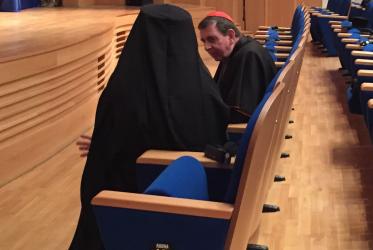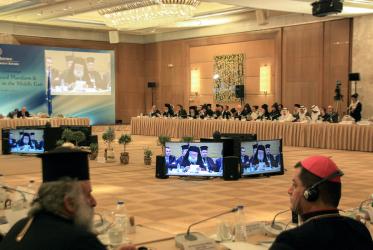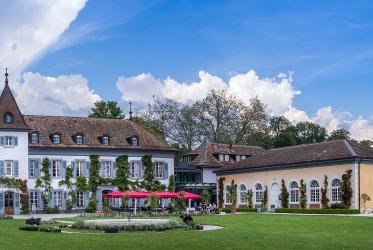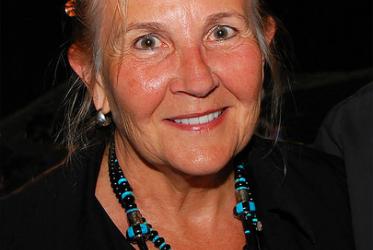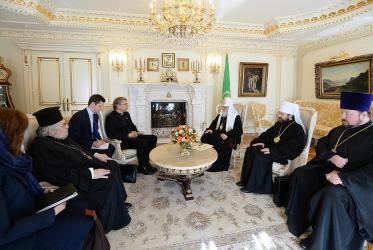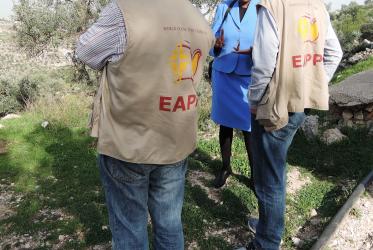Displaying 141 - 160 of 227
09 November 2015
Cardinal Kurt Koch tells WCC News: We have to deepen our solidarity
05 November 2015
Beating the drum for peace
23 October 2015
International conference addresses challenges in the Middle East
22 October 2015
Local and global work saves lives
22 October 2015
Bossey students combine academics with global relationships
21 October 2015
Conflict reporting fails women
06 October 2015
“Children are the heroes of the aboriginal residential schools story”
25 September 2015
Joint efforts to fight violence against children
18 June 2015
Walking to Emmaus in the Holy Land, and Sweden
12 May 2015
WCC delegation meets with Patriarch Kirill in Moscow
24 April 2015
A presence to accompany vulnerable communities
31 March 2015

